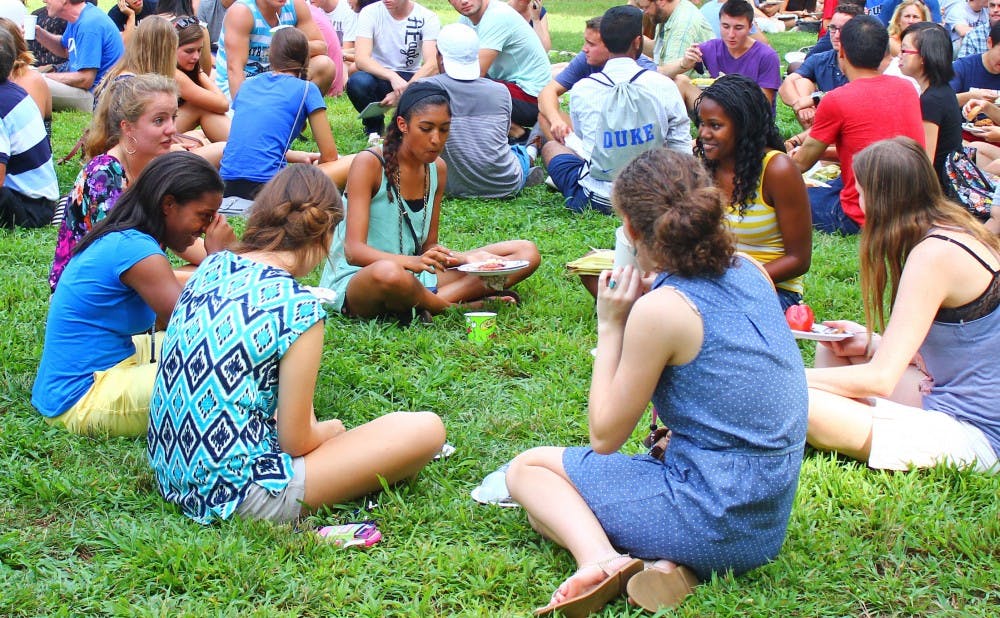Students are now being matched to academic advisors through a more accurate and efficient system.
After years of matching by hand, the Academic Advising Center implemented an algorithm this year that selected keywords from a database of information drawn from the academic profiles of students and advisors. The goal of the new matching system is to implement a "meaningful but technologically intact way to do it—not just turn people into a number, but actually do something that has meaning," said Elizabeth Fox, director of the Academic Advising Center.
“We went through multiple iterations of the match before we ultimately did it for the incoming class,” said Edward Gomes, senior associate dean for Trinity Technology Services, which developed the database and algorithm. “That was part of the development process—did it work, what did it look like… Now let’s move it into production and see how it works.”
When Fox took her position three years ago, the matching process was markedly different—each summer, she sat down with two Excel spreadsheets containing information about students’ and advisors’ interests and matched them one by one.
“It was a very daunting task,” she said. “I didn’t think at the end of the day that I served students or advisors well.”
The spreadsheet system proved inefficient and time-consuming, Gomes noted.
"Spreadsheets aren’t designed to work that way,” he said. “It requires a lot of physical resources on the computer to make it work. Putting it in a database structure, which is optimized for these types of needs, seemed to be the best logical step forward.”
During her first year as director, Fox began the process of changing the matching system. As it was, the system made it difficult for high-quality advisors to perform their jobs well—not only were they often put with students who did not necessarily match their skill sets, there were too many students per advisor.
"We decided to more than double the number of academic advisors, so that each advisor could advise fewer students to create a real space in which advising could take place," Fox said.
Previously, advisors took 12 students each year. With a new total of approximately 250 advisors, each one can now choose to take three, six, nine or 12.
In recruiting new advisors, Fox and her staff targeted not only Trinity professors, but also faculty members from the School of Law and Fuqua School of Business who could be able to address different student concerns.
Even with the more advanced system, not every match will be perfect, Fox said. But she noted that dedicated, well-trained advisors will be able to bridge gaps and help students nonetheless.
"I don't think that everyone has to be an expert in the discipline—what they need to know is what they're really good at and how to contribute," Fox said. "What we ask advisors to do is to think about the areas where you know you're good at, think the areas where you're not good and try to figure out how you're going to fill in those gaps."
Advisors have expressed satisfaction with the new system, Although the Center has not yet received official feedback on the system, Fox said she believes
“Ultimately, it’s a big win for the students,” Gomes said. “And that’s the most important thing.”
Get The Chronicle straight to your inbox
Signup for our weekly newsletter. Cancel at any time.

